Best Database Management Books to Buy in October 2025

Database Design for Mere Mortals: 25th Anniversary Edition


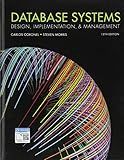
Database Systems: Design, Implementation, & Management


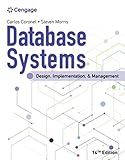
Database Systems: Design, Implementation, & Management (MindTap Course List)


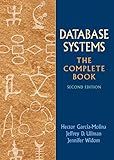
Database Systems: The Complete Book


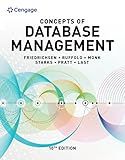
Concepts of Database Management (MindTap Course List)


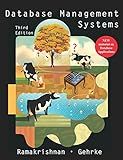
Database Management Systems, 3rd Edition


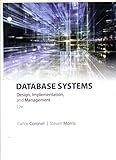
Database Systems: Design, Implementation, & Management


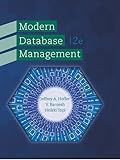
Modern Database Management


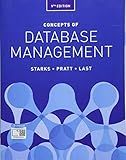
Concepts of Database Management


To call an Oracle procedure in Laravel, you can use the DB facade to execute the procedure. First, establish a connection to your Oracle database in the database configuration file. Then use the DB facade to call the procedure using the following syntax:
DB::statement('BEGIN your_procedure_name(:param1, :param2); END;');
Make sure to replace "your_procedure_name" with the actual name of the procedure and replace ":param1", ":param2", etc. with the appropriate parameter values. You can also pass the parameters as an array:
DB::statement('BEGIN your_procedure_name(?, ?); END;', [$param1, $param2]);
This will execute the Oracle procedure in your Laravel application.
What is the impact on scalability when calling oracle procedures in Laravel?
Calling Oracle procedures in Laravel can have an impact on scalability depending on how efficiently the procedures are written and how they are being called.
If the Oracle procedures are well optimized and performant, calling them in Laravel should not have a significant impact on scalability. However, if the procedures are complex, resource-intensive, or not optimized, it could lead to slower response times and increased resource utilization, potentially impacting the scalability of the application.
It is important to ensure that the Oracle procedures are efficiently designed and tuned for performance to minimize any negative impact on scalability when calling them in Laravel. Additionally, using caching mechanisms or optimizing the way the procedures are called can also help improve scalability and performance.
What is the security best practices for calling oracle procedures in Laravel?
- Use parameterized queries: When calling Oracle procedures in Laravel, always use parameterized queries to prevent SQL injection attacks. This helps to securely pass input values to the procedure without the risk of malicious code injection.
- Sanitize input data: Before passing input data to the Oracle procedure, make sure to sanitize and validate the data to ensure it is safe and does not contain any malicious code.
- Implement proper error handling: Handle errors and exceptions properly when calling Oracle procedures in Laravel. This includes catching and logging any errors that occur during the procedure call to help diagnose and fix issues quickly.
- Limit database privileges: Follow the principle of least privilege when granting permissions to database users or roles that are allowed to call Oracle procedures. Only grant the necessary permissions required for the procedures to run successfully.
- Use SSL encryption: If the Oracle database is hosted remotely, ensure that communication between Laravel and the database server is encrypted using SSL to prevent data interception and tampering.
- Implement access controls: Use Laravel's authentication and authorization features to control access to the Oracle procedures. Only authenticated and authorized users should be allowed to call the procedures.
- Regularly update software: Keep Laravel, Oracle, and any other related software up-to-date with the latest security patches and updates to prevent known vulnerabilities from being exploited.
- Monitor and audit database activity: Set up monitoring and auditing mechanisms to track and record all database activities, including calls to Oracle procedures. This can help detect and investigate any suspicious or unauthorized access to the database.
What is the significance of using stored procedures in Laravel applications?
Using stored procedures in Laravel applications can provide several benefits, including:
- Improved performance: Stored procedures can help to optimize the performance of database operations by reducing the amount of data transferred between the application and the database server.
- Security: Stored procedures can help to prevent SQL injection attacks by separating the business logic from the database query, making it more difficult for malicious code to be injected into the database.
- Code reusability: Using stored procedures allows developers to define complex database operations once and reuse them multiple times in different parts of the application, reducing code duplication and improving maintainability.
- Scalability: Stored procedures can help to improve the scalability of an application by offloading resource-intensive database operations to the database server, reducing the workload on the application server.
- Encapsulation of logic: Stored procedures allow developers to encapsulate complex business logic within the database itself, making it easier to manage and maintain over time.
Overall, using stored procedures in Laravel applications can help to improve performance, security, code reusability, scalability, and maintainability.
